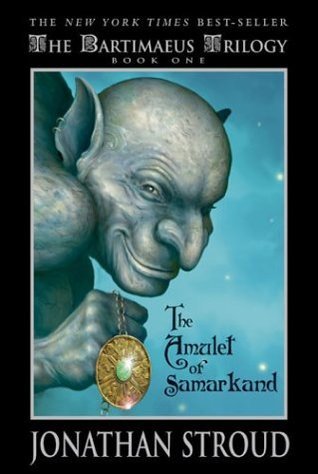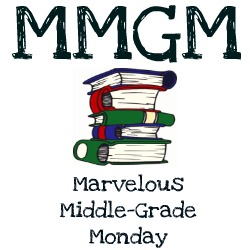I’ve realized that I need a new description, for books that I read and enjoy, but don’t precisely like. Â And the word I’ve decided on is–compelling. Â So, that is the official word I am hereby designating for this kind of book. Â Also, the best descriptive word I can come up with for The Amulet of Samarkand. Â Coincidence? Â Not remotely.
In a nut shell, it’s the story of a young boy, Nathaniel, who is 11 years old and an apprentice magician in a magic-riddled but otherwise modern-day London. Â He’s much too bright for his mundane master to handle, and both ambitious and vengeful in his pursuit of his goals. Â His motivations do develop some over the course of the book, but his primary wish is to humiliate the mean, ruthless magician Simon Lovelace, who cruelly humiliated Nathaniel.
The truth is, with motives like those, it’s surprising the book is enjoyable at all. Â However, there are a couple reasons it quickly overcomes the anti-hero’s lack of sympathy. Â The first is that Nathaniel is, in many respects, a victim of the society and system he lives in. Â Had he been taken in and lovingly challenged, while being nurtured and cared for, it’s reasonably clear he would have responded in kind. Â As is he’s wrenched away from his parents at a young age, treated coldly and unkindly by his master, and forced to live every day under the thumb of a man who lacks the capacity to instruct him or earn his respect. Â Worse, a fairly natural, boyish infraction is met by a deeply humiliating spectacle of abuse, meted out in a public way by Simon Lovelace. Â It’s not many people who would thrive under such circumstances, or avoid…forgive the mixed universes here…but, yes, there aren’t many who would be able to resist dabbling with the dark side of the force.
Additionally, we don’t spend all our time with Nathaniel. Â It’s interesting that the more sympathetic hero is a demon, but that’s the case. Â Bartimaeus may not be human–or even like humans–but he’s highly entertaining, with a sharp wit and engaging sarcastic voice that makes his sections of the story lively and keeps the reader entertained. Â Moreover, his position as someone being forced to do another beings dirty work is highly sympathetic. Â It also helps that Nathaniel has chosen in Simon an enemy who is himself so unlikable that we want to see him defeated by almost any means. Â So, his enemy is our enemy and we all triumph in the end. Â Yay!
Now, let’s get Apricot-kitty’s take on it:
 “Conniving, complicated, and contrary–I liked it! Â The footnotes were a nice touch, too. Â Like we got to enjoy private texts straight from the demon, and were more on his side than that of the bratty boy.”
“Conniving, complicated, and contrary–I liked it! Â The footnotes were a nice touch, too. Â Like we got to enjoy private texts straight from the demon, and were more on his side than that of the bratty boy.”
And that sums it up well, my dear readers! Â If you’re looking for a book that will pull you along despite yourself–rather like a summoned demon–and generate great discussion about what makes a good anti-hero, as well as weighty topics like the impact of a society on its members and so on, this one is a good pick. Â For more reviews, spotlights, interviews and giveaways, stop by Shannon Messenger’s >a href=”http://ramblingsofawannabescribe.blogspot.com/”>blog, and happy reading!


Greg Pattridge
Natalie Aguirre
Suzanne Warr
Joanne Fritz
Suzanne Warr
Ms. Yingling
Suzanne Warr
Jess@Fairday's Blog
Suzanne Warr